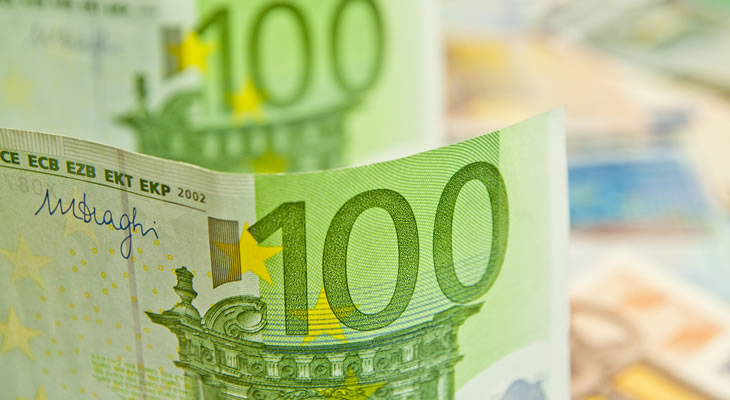Pound Sterling Euro (GBP/EUR) Exchange Rate Loses Ground as German Unemployment Falls
As market fears over the political situation in Italy eased on Wednesday this returned the Pound Sterling to Euro (GBP/EUR) exchange rate to a weaker footing.
Confidence in the Euro (EUR) was temporarily restored by an unexpected improvement in the German unemployment rate.
With unemployment in the Eurozone’s powerhouse economy falling to its lowest level since reunification in 1990 at 5.2% investors saw fresh incentive to buy into the single currency.
This boosted optimism in the outlook of the German economy, suggesting that growth could pick back up in the second quarter.
Although April’s German import price index failed to strengthen as far as forecast this was not enough to drag on the recovery of EUR exchange rates in the short term.
Signs of Easing UK Inflation Weigh on GBP/EUR Exchange Rate
Further downside pressure was in store for the Pound Sterling to Euro (GBP/EUR) exchange rate on the back of May’s British Retail Consortium (BRC) shop price index.
Prices continued to contract sharply in May following a similar weakening in April, with the index falling -1.1% on the year.
This represented the largest fall in prices since the start of 2017, adding to evidence that the rise in inflation that followed the Brexit vote has eased.
Investors were not encouraged by this dip, with the decline in shop prices exacerbating fears that the Bank of England (BoE) will not raise interest rates again any time soon.
Demand for Pound Sterling (GBP) could deteriorate further on Thursday if the latest UK net consumer credit data fails to impress.
An increase in household debt would not give the BoE any particular cause for confidence, to the detriment of GBP exchange rates.
Political Uncertainties Forecast to Boost Pound Sterling Euro (GBP/EUR) Exchange Rate
Political worries surrounding Italy and Spain are likely to limit the downside potential of the Pound Sterling to Euro (GBP/EUR) exchange rate in the days ahead.
If Spanish Prime Minister Mariano Rajoy loses a critical vote of no confidence on Friday the Euro looks set to slump further.
With the future of the Eurozone coming under fresh question as a result of this political turmoil the single currency is likely to remain out of favour.
Bert Colijn, senior Eurozone economist at ING, commented:
‘As developments towards a new government continue, uncertainty about the Italian stance towards the EU and the Euro will prevail. Even though it is very unclear what the next steps will be, markets have clearly woken up from the euro-risk lull that started after the Macron presidential election victory in France last year. This continued uncertainty will weigh on Eurozone growth in the months ahead, and a bounce back to growth rates seen in 2017 seems very difficult.’
Unless tensions ease and investors find fresh cause for confidence the Pound Sterling to Euro (GBP/EUR) exchange rate looks set to continue its recent push higher.


Comments are closed.